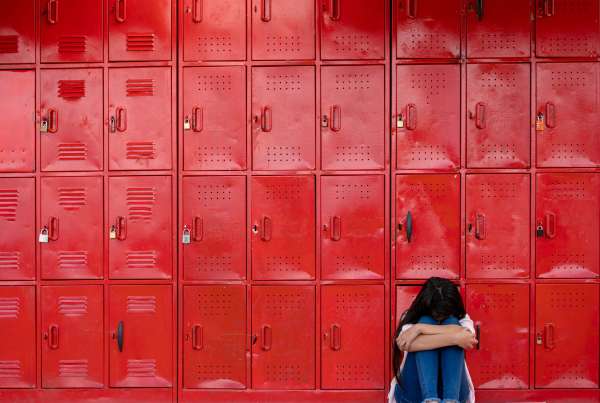 Image via Wikipedia
Image via Wikipedia Bullies: tormentors, intimidators, tyrants–they carry many a title, yet they all do the same thing: terrorize those they perceive as weaker and/or different than they are. Peer groups define how kids socialize at school: they dictate fashion, hobbies, opinions, and are the basic, social construct for survival. For many, not subscribing to a peer groups’ values and norms can often lead to torment. Say a child’s peer group watches a lot of television, plays video games, engages in war play, and listens to popular children’s music, like Justin Beiber or Hannah Montana–they define the norm for their peer group. So, if a child comes along, who practices non-violence and doesn’t watch much TV or play video games, that child is often labeled as “weird,” a “sissy,” a “fag,” or “gay.” In short, because that child differs from their peer group’s social norms, they are easily targeted and often victimized by bullying. Not fitting in can be deadly, but it shouldn’t be. If anything, it should be an opportunity to learn tolerance and compassion.
In recent news, there has been a surge in suicides linked to bullying. Asher Brown and Seth Walsh were both 13 when they killed themselves–and both were targets of anti-gay bullying, along with Justin Aaberg, 15, Tyler Clementi, 18, and Billy Lucas, 15. In a study done by Sarah Konrath and Edward O’Brien at the University of Michigan, findings include a decrease in empathy among young adults, and a broader intolerance for difference. Contributing factors cane be everything from violent media, ie, video games and movies, to social media, where one’s ability to tune someone out is far easier than in real life. All of this makes it easier for bullies to function, and harder for those being bullied to be heard.
Some signs that someone is being bullied can include:
- Having few, if any friends, with whom he or she spends time;
- Seems afraid of going to school, walking to and from school, riding the school bus, or taking part in organized activities with peers (such as clubs);
- Takes a long, “illogical” route when walking to or from school;
- Has lost interest in school work or suddenly begins to do poorly in school;
- Appears sad, moody, teary, or depressed when he or she comes home;
- Complains frequently of headaches, stomachaches, or other physical ailments;
- Has trouble sleeping or has frequent bad dreams;
- Experiences a loss of appetite;
- Appears anxious and suffers from low self-esteem.
Talking to your kids every day and asking questions is invaluable. Sometimes, it’s those moments where the one being bullied can finally feel safe enough to open up. If you’re a victim of bullying, please talk to someone–one of the most important factors in stopping the insanity is naming it. Taking action could ultimately save your life; ironically, action is the last thing a bully will expect.







